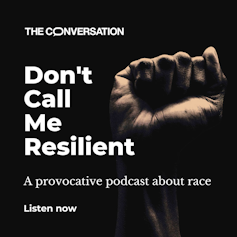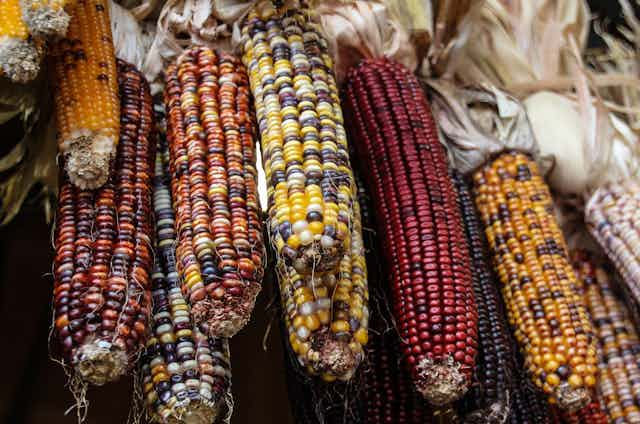One of the most exciting parts of my job is the way that folks are rolling up their sleeves and they’re getting onto the land and taking the responsibility to feed each other again. - Tabitha Robin Martens
The best food banks say that they are working to put themselves out of business. Food banks are not a long-term solution. At the same time, I say it’s complicated because in this moment, because of the vast and dire nature of food insecurity, we’re talking about people’s lives, people having the sustenance to get from day to day, and people are truly dependent on that system. - Melana Roberts
A lot of people think of Canada as a wealthy nation. But for many people across the country, access to healthy affordable food is still a real struggle.
According to recent stats, one out of every eight households in Canada are food insecure. For racialized Canadians, that number increases to two to three times the national average. For Black and Indigenous households, that number jumps even higher: Almost 30 per cent of Black households and 50 per cent of Indigenous households experience food insecurity.
The pandemic has only made things worse.
Like shelter, food is a basic necessity of life.
It provides the calories and nutrients we need to survive. And food is also connected to our mental health, our culture and families and our sense of self.
But our food systems are failing to feed all of us.
In this episode of Don’t Call Me Resilient, we’re picking apart what is broken and talking about ways to fix it with two women who have been battling this issue for years.
Tabitha Robin Martens is a mixed ancestry Swampy Cree researcher and assistant professor at the University of British Columbia’s Faculty of Land and Food Systems. When she’s not writing and teaching about Indigenous Food Sovereignty, she spends her time on land, working with her people and learning traditional Cree food practices.
And Melana Roberts is a food policy expert and food justice advocate, and the Chair of Food Secure Canada. She led the charge to help create North America’s first municipal Black Food Sovereignty Plan at the City of Toronto.
Read the transcript for this episode here.
Additional Reading
Each week, we highlight articles or books that drill down into the topics we discuss in the episode.
Our Hands at Work: Indigenous Food Sovereignty in Western Canada
Why are babies going hungry in a food-rich nation like Canada?
Growing a garden can also bloom eco-resilient, cross-cultural, food-sovereign communities
At a New York City garden, students grow their community roots and critical consciousness
Indigenous researchers plant seeds of hope for health and climate
How traditional seeds and crops are bringing food independence to Timor-Leste
Seedkeeping can connect people with their roots and preserve crops for future generations
Listen and follow

This is our last Don’t Call Me Resilient episode of Season 2. We hope you had a chance to listen to all 12 of the episodes. If you are coming to us for the first time, you can listen and follow along right here where you will find past episodes as well as links to The Conversation Weekly, featuring stories from our global network. Other easy ways to find us are to subscribe on Apple Podcasts, Google Podcasts, Spotify or wherever you listen to your favourite podcasts.
I’d love to hear from you, including any ideas for future episodes. Drop me an email or send me a note somewhere on social media. Join The Conversation on Twitter, Facebook and Instagram and use #DontCallMeResilient.
Don’t Call Me Resilient is a production of The Conversation Canada. This podcast was produced with a grant for Journalism Innovation from the Social Sciences and Humanities Research Council of Canada. The series is produced and hosted by Vinita Srivastava. Our producer is Susana Ferreira. Our associate producer is Ibrahim Daair. Reza Dahya is our sound producer. Our consulting producer is Jennifer Moroz. Lisa Varano is our audience development editor and Scott White is the CEO of The Conversation Canada. Zaki Ibrahim wrote and performed the music we use on the pod. The track is called Something in the Water.

